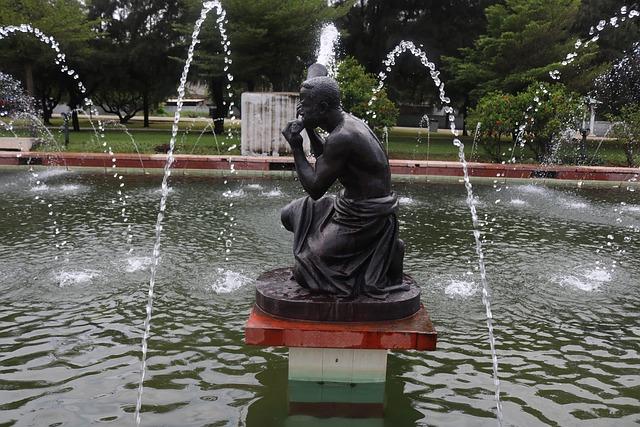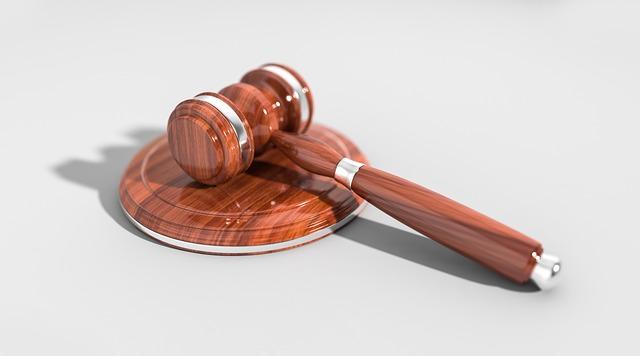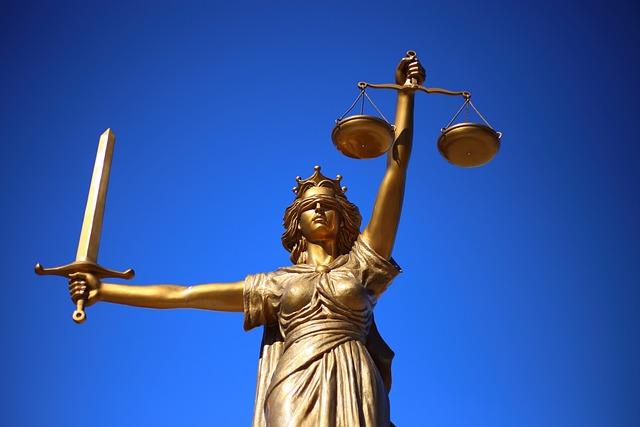In a significant legal development, the Accra High Court has acquitted Kwesi Nyantakyi, the former president of the Ghana Football Association (GFA), after a protracted five-year legal battle that has captivated the sports community and the nation at large. Nyantakyi, who was once one of the moast influential figures in African football, faced numerous allegations that led to his exit from the football governing body and tarnished his reputation. The court’s ruling not only marks a pivotal moment for Nyantakyi but also raises questions about the broader implications for governance in sports within Ghana and across Africa. As the dust settles on this lengthy legal saga, many are now looking ahead to how this decision will influence the future of football governance in the region and the potential restoration of Nyantakyi’s standing in the sport.
Accra High Court Ruling and Its Implications for Sports Governance in Ghana
The recent ruling by the Accra High Court to acquit former Ghana Football Association (GFA) president kwesi Nyantakyi after a lengthy five-year legal battle marks a significant turning point in the realm of sports governance in Ghana. This decision not only reinstates his reputation but also poses critical questions about the integrity of football administration in the country.The case, which emerged from allegations of corruption following the infamous Anas Aremeyaw Anas exposé, has underscored the complexities of governance within Ghanaian sports. Stakeholders are now called to reevaluate the mechanisms in place that oversee accountability and openness in sports management.
As the dust settles, the implications of this ruling could ripple through various facets of sports governance, including:
- Policy Reform: the GFA may need to introduce stricter regulations and oversight to prevent future scandals.
- Restoration of Trust: Restoring stakeholder confidence in football administration is vital for future growth and investment.
- Increased Scrutiny: Authorities and fans alike may demand more rigorous checks and balances to safeguard the sport’s integrity.
This case serves as a cautionary tale for sports bodies, urging them to be proactive rather than reactive in governance strategies.

Context of the Legal Battle: A Timeline of Events Leading to Acquittal
Kwesi Nyantakyi’s legal battle began in June 2018 when undercover journalist Anas Aremeyaw Anas released the explosive documentary, *Number 12*.The film implicated nyantakyi in various corrupt practices, leading to swift consequences. Within weeks, he was suspended from his position as the President of the Ghana Football Association (GFA) and later faced criminal charges.Key events in this tumultuous period include:
- June 2018: Release of *Number 12* documentary exposes Nyantakyi.
- July 2018: Nyantakyi is banned by FIFA pending investigations.
- August 2019: Ghana’s Attorney General charges him with fraud and corruption.
- October 2022: Court hearings commence to evaluate the case against him.
Throughout the lengthy judicial process, both public opinion and media scrutiny remained intense. The court proceedings included several significant developments, impacting both Nyantakyi’s personal life and the management of football in Ghana. A timeline of critical moments reveals the struggles faced in the courtroom:
| Date | Event |
|---|---|
| March 2023 | Importent testimonies are presented in court. |
| August 2023 | Final arguments are heard. |
| october 2023 | Acquittal verdict is delivered. |

Key Legal Insights from the case Against Kwesi Nyantakyi
The recent acquittal of Kwesi Nyantakyi, the former president of the Ghana Football Association (GFA), by the Accra High Court marks a significant moment in legal discourse surrounding sports governance in Ghana.After an extensive five-year legal battle, the court’s decision sheds light on key legal principles involving due process and evidence evaluation. This case has reaffirmed the importance of safeguarding the rights of individuals within the sporting framework while also highlighting the complexities that arise when allegations of corruption and misconduct are made against prominent figures in sports administration. The ruling suggests a necessity for clarity and complete evidence in prosecuting similar cases in the future.
Legal experts are now analyzing the implications of this ruling for future cases involving sports officials and governance. Among the critical insights drawn from this case are:
- Diligence in Inquiry: The importance of thorough and unbiased investigations before charges can be brought.
- Procedural Fairness: The implications of ensuring that individuals have access to fair hearings and the chance to defend themselves.
- Impact on Reputation: How prolonged legal battles can affect the reputations of those involved, regardless of the outcome.
- setting Legal Precedents: The case sets a precedent for how future cases of a similar nature might potentially be approached in terms of legal standards and expectations.

Impact of the Acquittal on Ghanaian Football and its Leadership
The acquittal of Kwesi Nyantakyi, the former president of the Ghana Football Association (GFA), marks a significant turning point in the landscape of Ghanaian football. After a lengthy five-year legal battle, Nyantakyi’s return to the footballing sphere will likely reinvigorate discussions regarding the governance and accountability within the GFA. Key aspects of this development include:
- Restoration of Leadership: Nyantakyi’s acquittal paves the way for his potential reinstatement in football leadership, which could stabilize the GFA amid ongoing scrutiny.
- Impact on Sponsorships: Confidence from sponsors might return, as clarity in leadership often influences financial backing, crucial for the development of the sport.
- perception of Justice: The ruling sends a message about the fairness of the legal system in Ghana, impacting how stakeholders view governance practices within the sport.
Furthermore, the repercussions of this ruling extend beyond just the GFA; they also touch upon the broader advancements of football in Ghana. With Nyantakyi’s experiance, stakeholder engagement might see a resurgence, particularly in:
| Area | Potential Impact |
|---|---|
| Youth Development Programs | Increased funding and structure for nurturing young talent. |
| International Relations | Enhanced partnerships with global football entities,promoting growth. |
| Fan Engagement | Strengthened relationships with fans through obvious communication. |

Recommendations for Strengthening Legal Frameworks in Sports Management
In light of the recent acquittal of former Ghana FA boss Kwesi nyantakyi by the Accra High Court, there is a pressing need to reinforce the legal frameworks surrounding sports management across Africa. The drawn-out legal battle over the past five years has highlighted significant vulnerabilities within the regulatory systems governing sports associations. To enhance accountability and transparency,it is essential that national leagues and federations implement robust guidelines that prioritize ethical practices and conflict resolution mechanisms.
Key recommendations to bolster these legal frameworks include:
- Establishing Anti-Corruption Units: dedicated teams within sports organizations to investigate and address misconduct swiftly.
- Regular Training programs: Workshops and seminars for officials on legal compliance and ethical standards in sports governance.
- Enhancing Whistleblower Protections: Policies that encourage reporting of unethical behavior without fear of retribution.
- Implementing Financial Audits: Routine financial reviews to ensure funds are used appropriately and transparently.
Furthermore, collaboration with international bodies such as FIFA and the African Union can facilitate the exchange of best practices. By enacting clear regulations that govern the conduct of sports executives, stakeholders can foster an environment promoting fairness and integrity. The integration of technology can also play a vital role, with the development of secure reporting systems to streamline grievances and ensure that all parties are held accountable for their actions.
Public Reaction and the Future of Accountability in Ghanaian Sports Institutions
the acquittal of former Ghana Football Association president Kwesi Nyantakyi has ignited a fervent discussion across various sectors of Ghanaian society. as public sentiment swells, many are questioning the effectiveness of the judicial system in ensuring transparency and accountability within sports institutions. The high-profile nature of Nyantakyi’s case, which was marred by allegations of corruption, highlights a significant dichotomy in public trust towards legal outcomes in instances involving prominent figures. Many citizens are demanding that measures be put in place to safeguard the integrity of sports governance and hold officials accountable, emphasizing the need for reforms that would enhance transparency in financial management and decision-making processes within the Ghana Football Association and related bodies.
Looking ahead, the focus on future accountability in Ghanaian sports institutions is critical. Key stakeholders, from government bodies to civil society organizations, are urged to collaborate and formulate standards that promote ethical conduct among sports administrators.Potential initiatives could include the establishment of a dedicated autonomous oversight committee tasked with monitoring financial transactions and the implementation of whistleblower protections to encourage reporting of malfeasance without fear of reprisal. As Ghana navigates this pivotal moment, the call for a redefined framework of accountability could not be more pressing, particularly as it seeks to restore faith in its sports governance systems.
concluding Remarks
the acquittal of Kwesi Nyantakyi by the Accra High Court marks a significant moment in the protracted legal saga that has enveloped the former Ghana Football Association president for the past five years. This decision not only clears Nyantakyi of the corruption charges that have plagued him since the explosive revelations of the Anas Aremeyaw Anas documentary but also raises broader questions about the integrity and governance of football administration in Ghana. As Nyantakyi seeks to rebuild his reputation and potentially continue his contributions to the sport, the focus now shifts to the implications of this ruling on Ghanaian football and the ongoing efforts to restore faith among supporters, stakeholders, and international partners. The case serves as a stark reminder of the challenges faced by football administrators in maintaining ethical practices, and it is indeed hoped that lessons learned from this ordeal will lead to a brighter future for the game in the nation.















